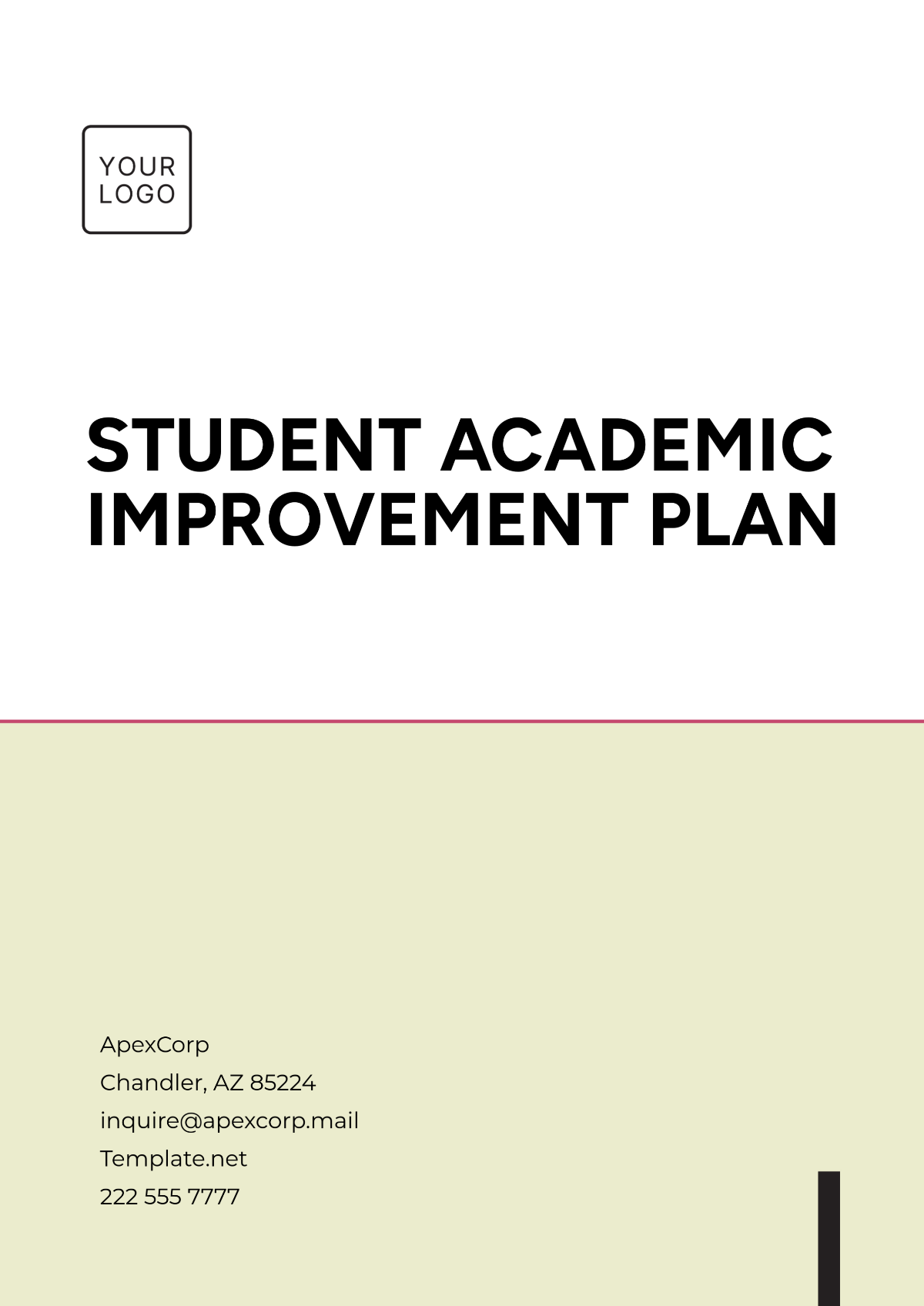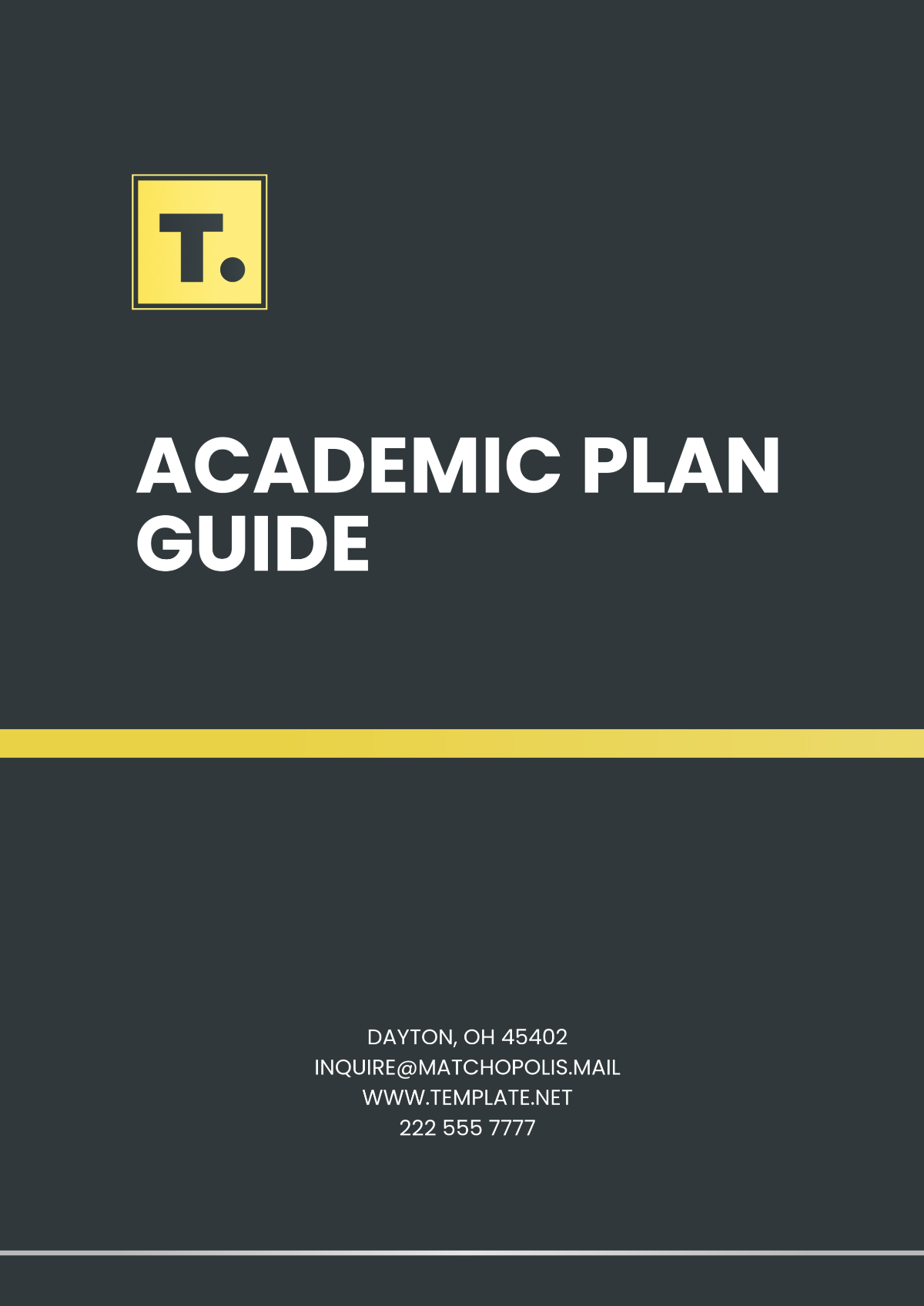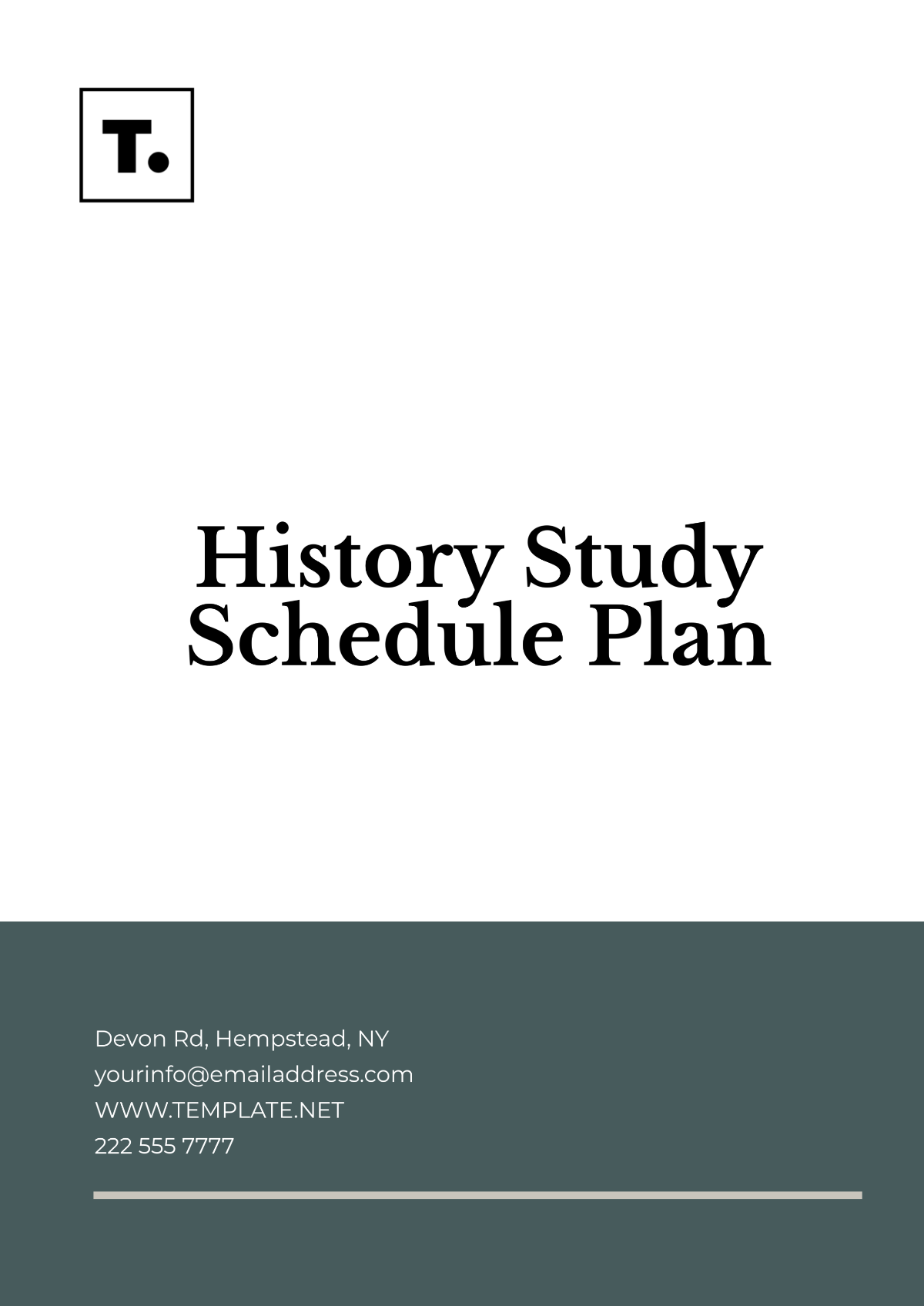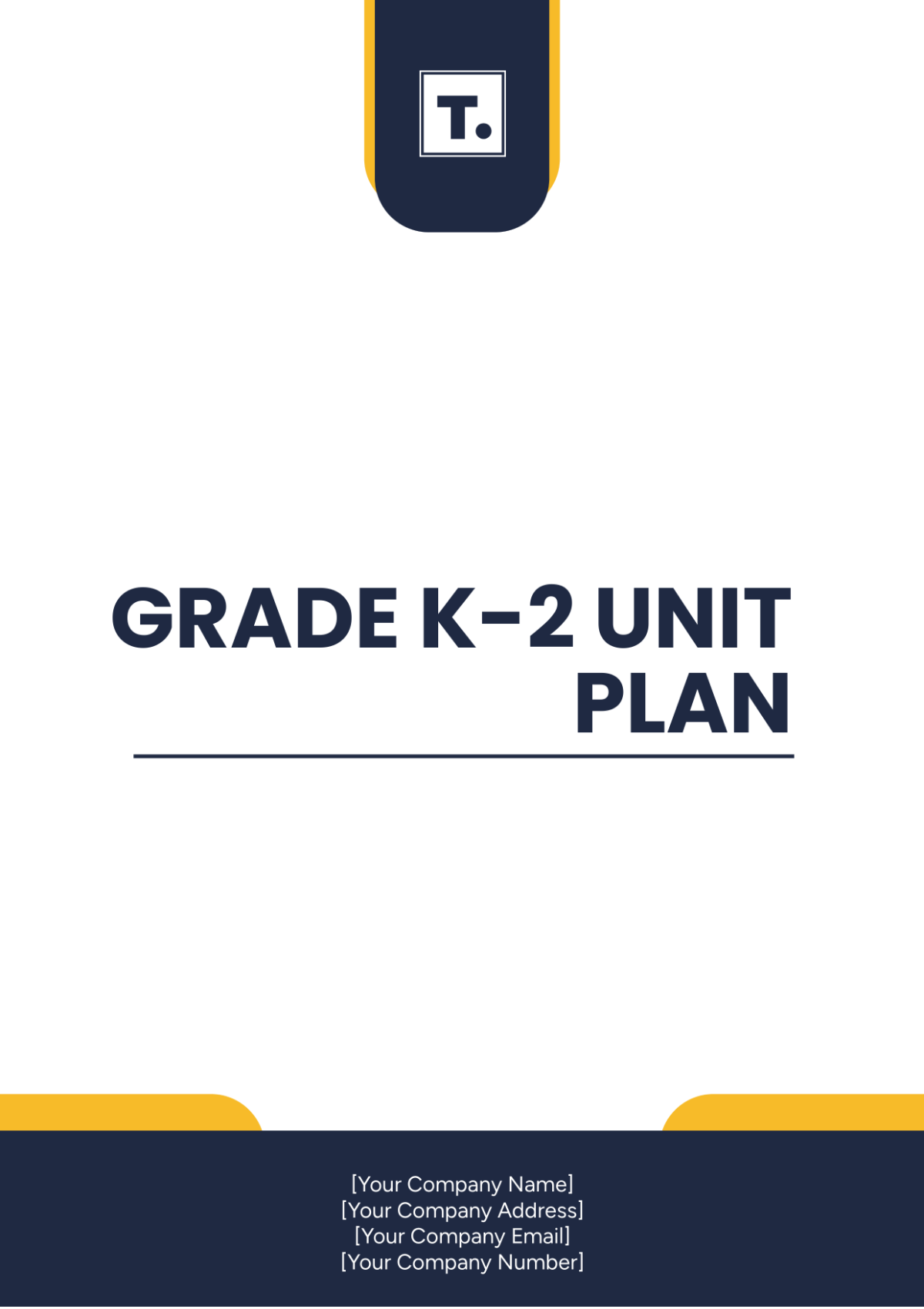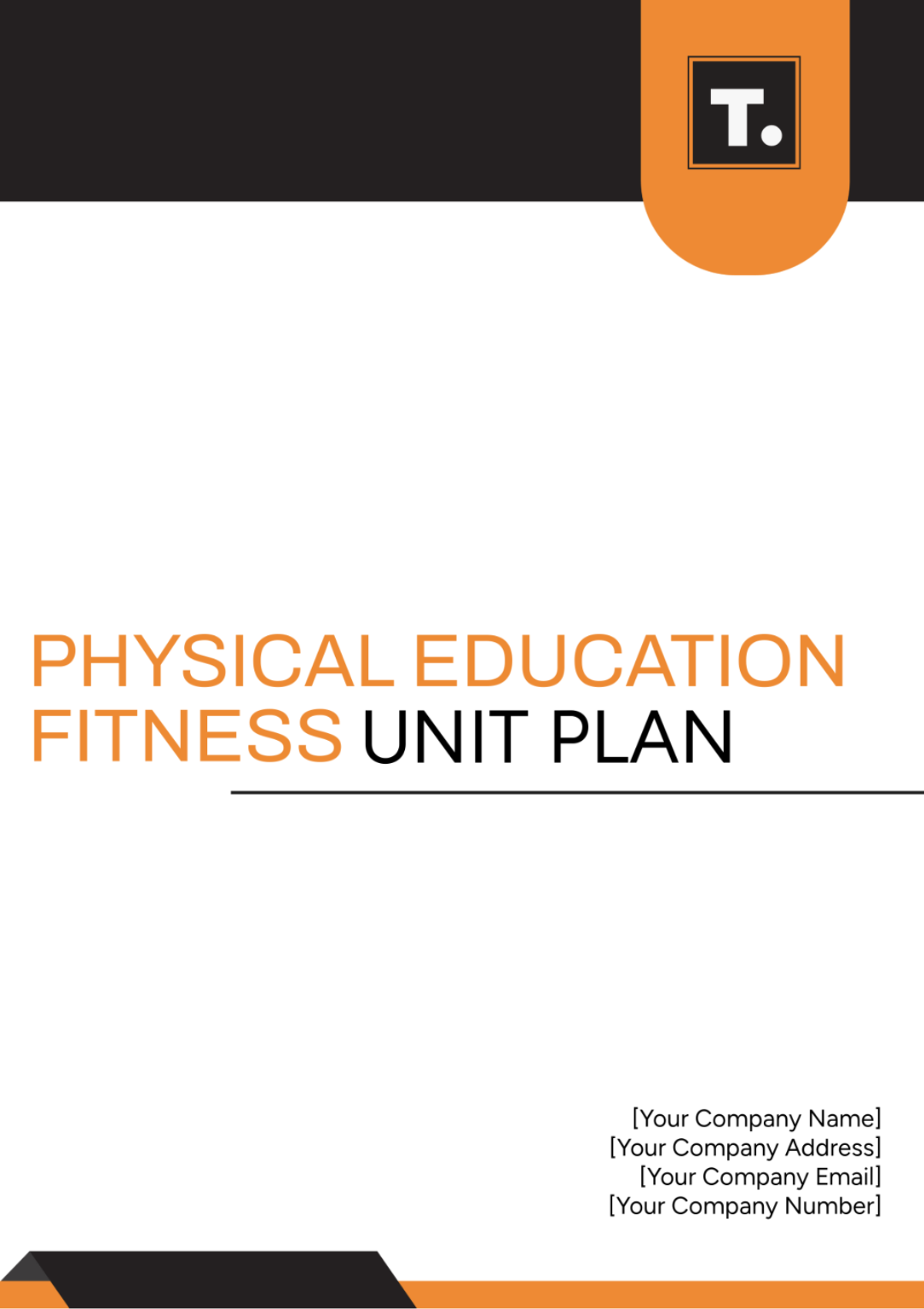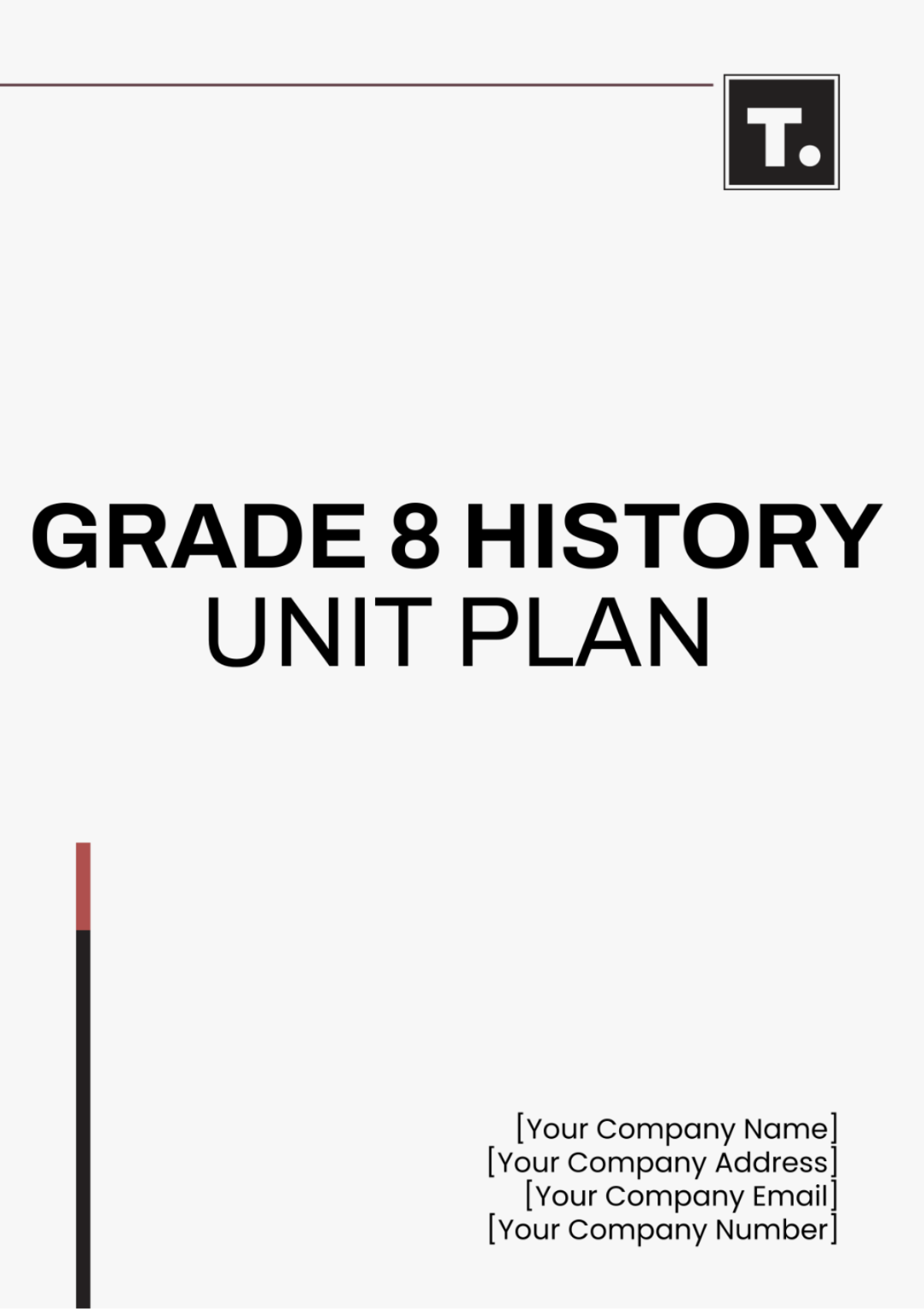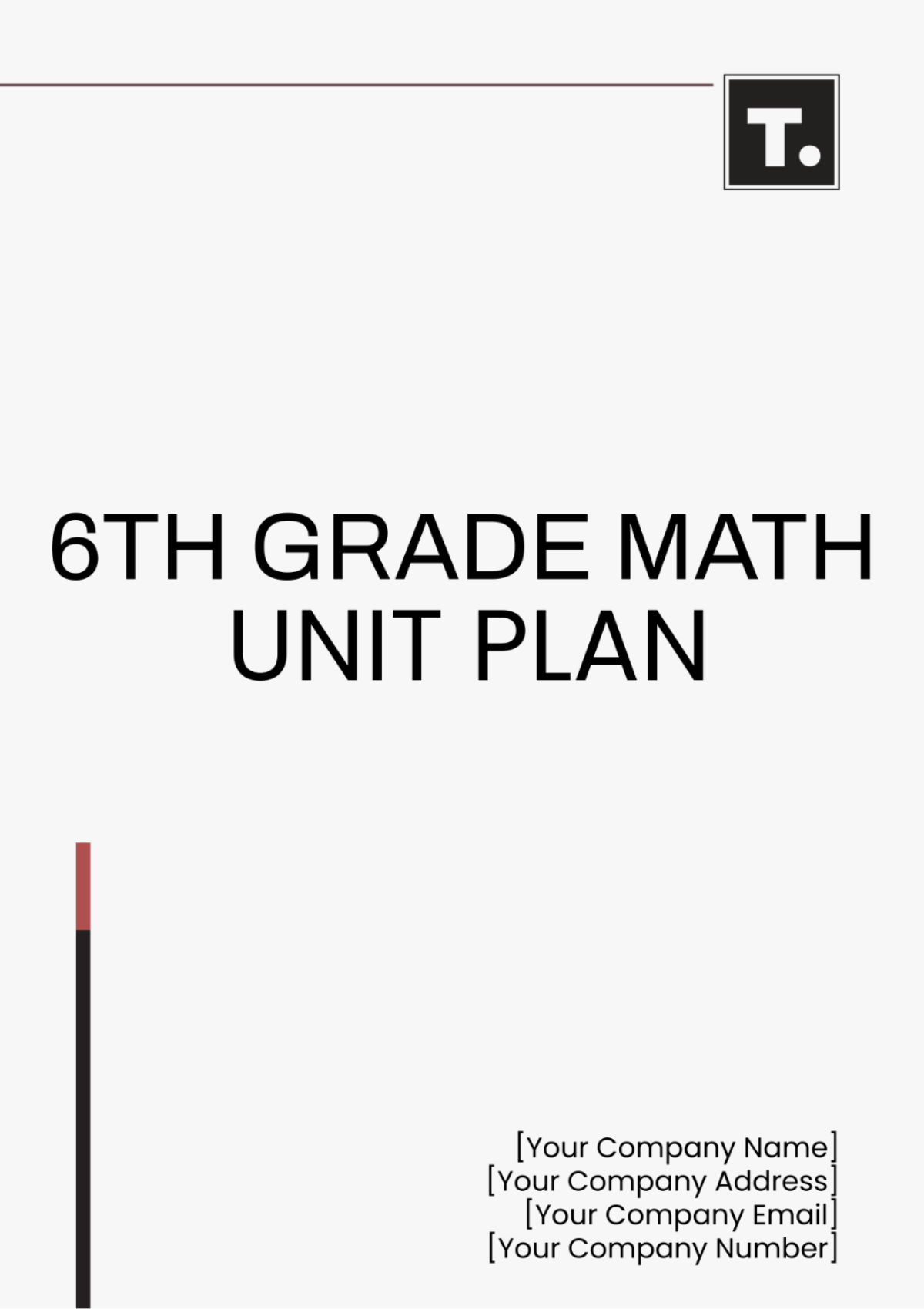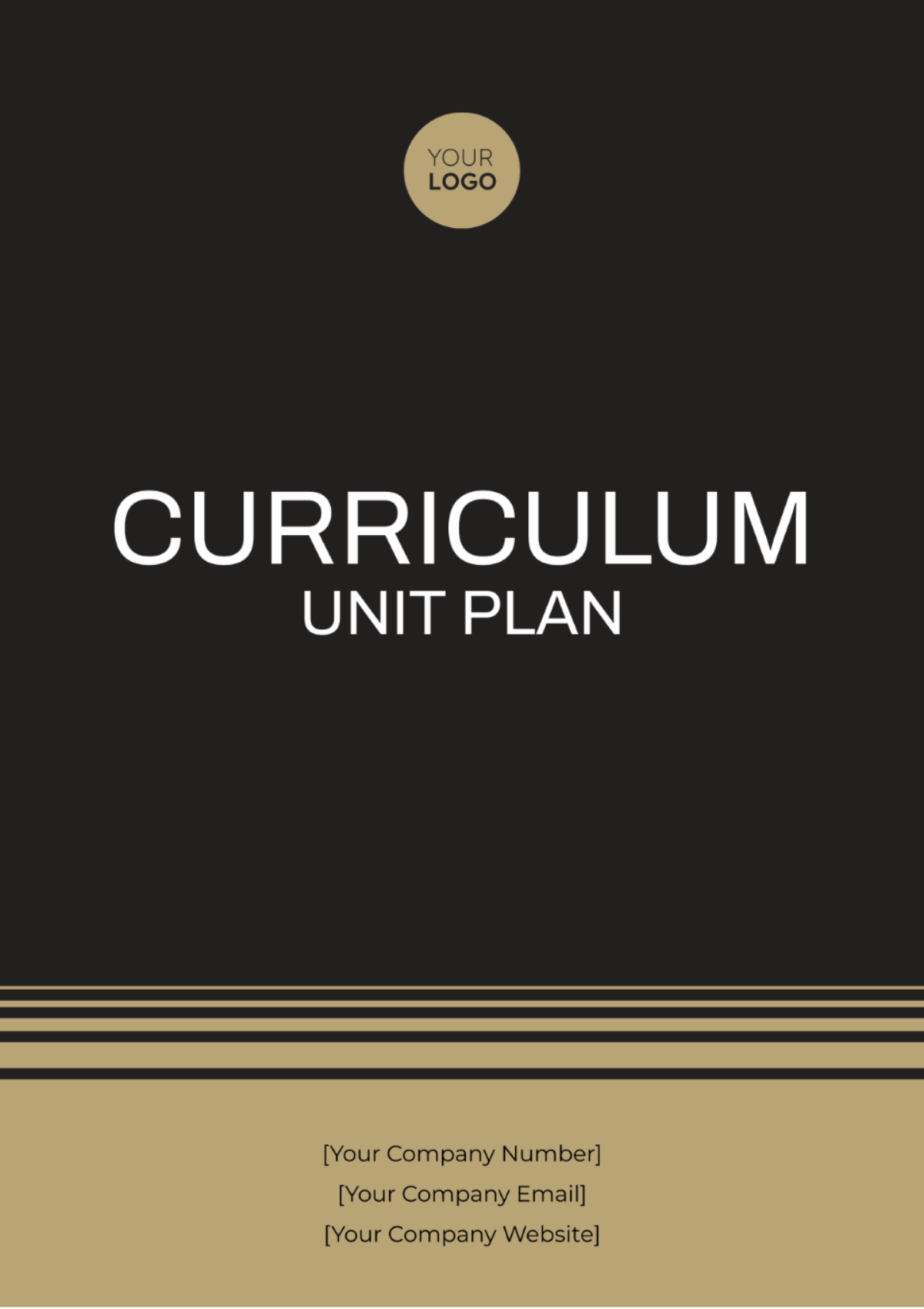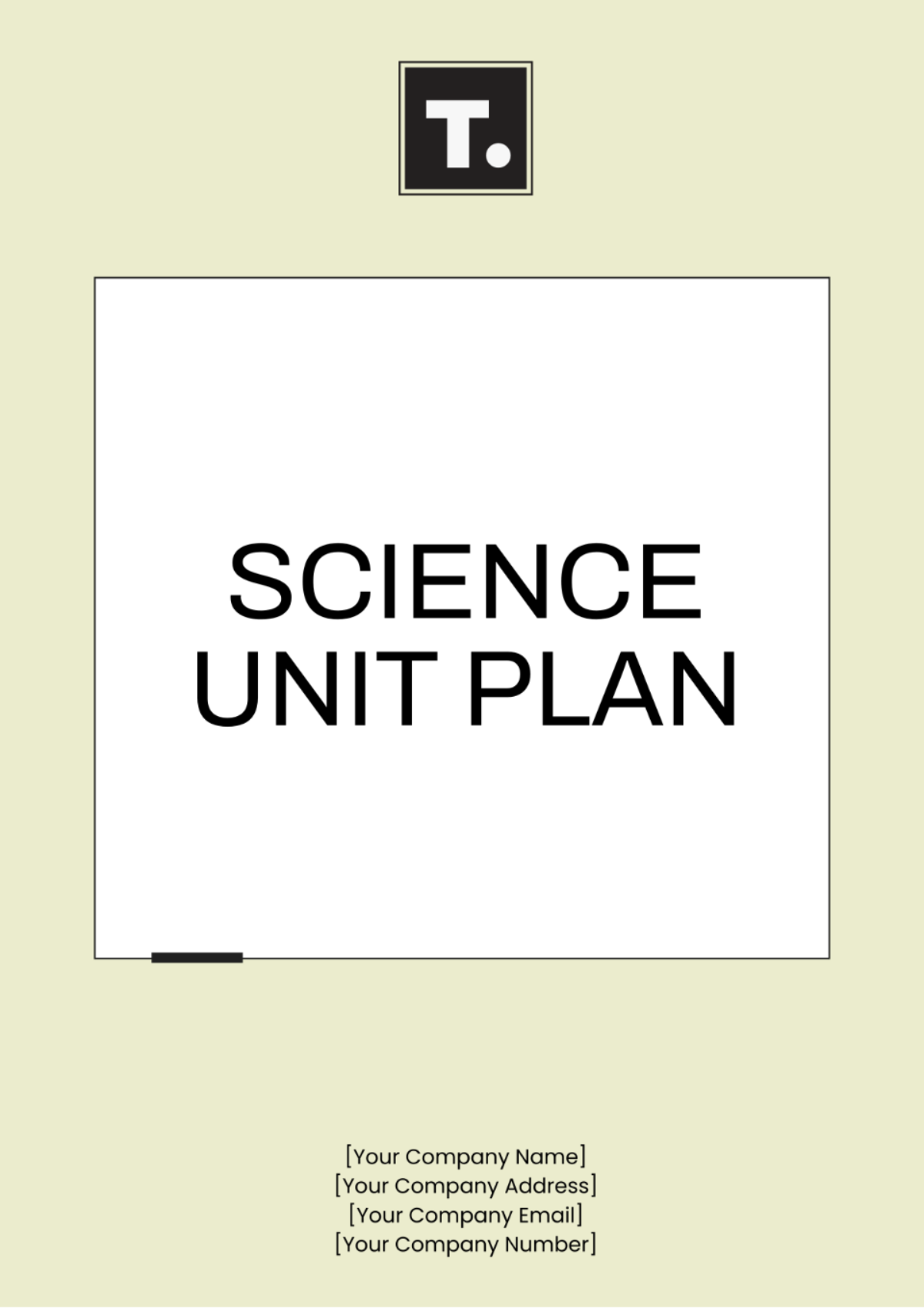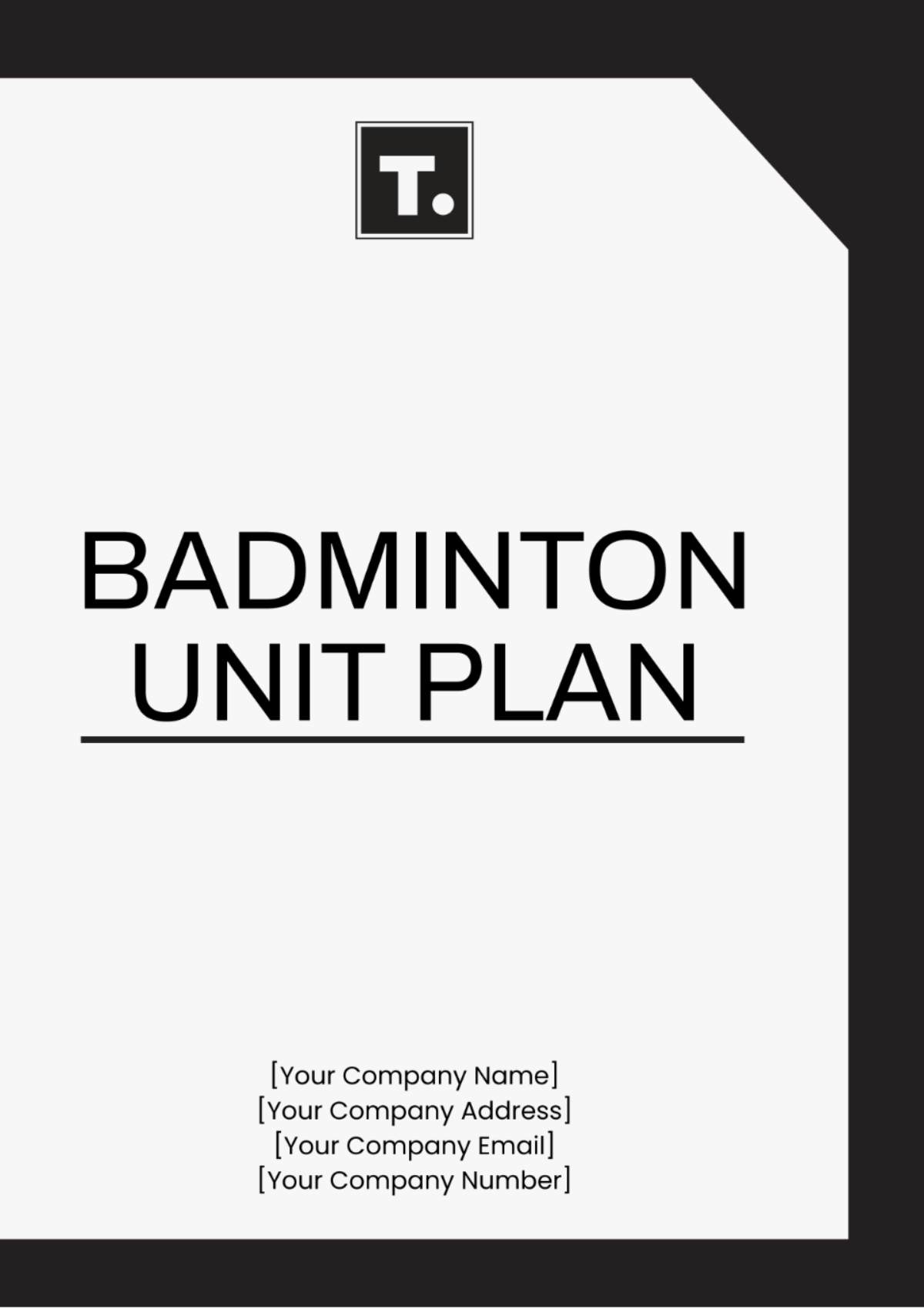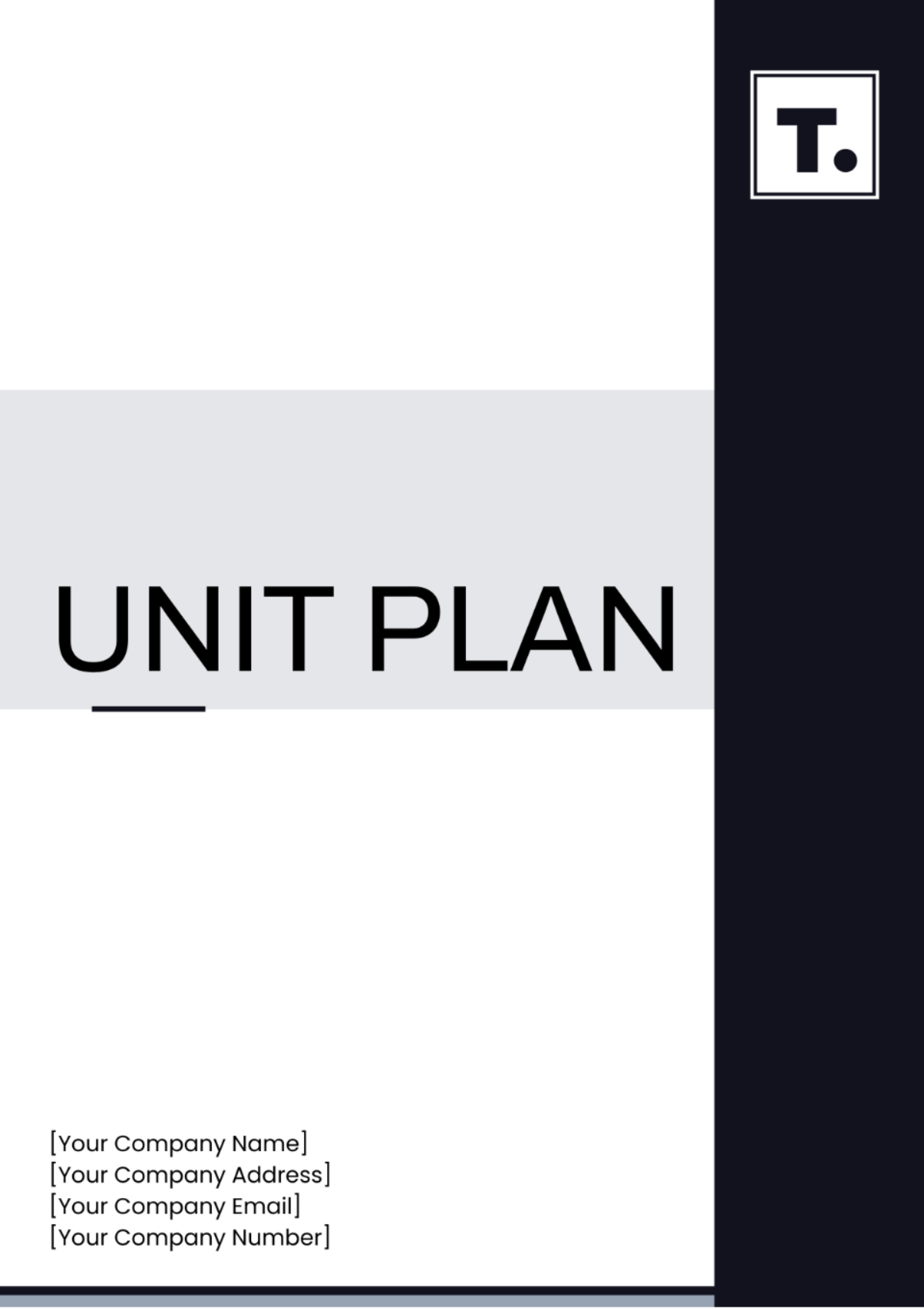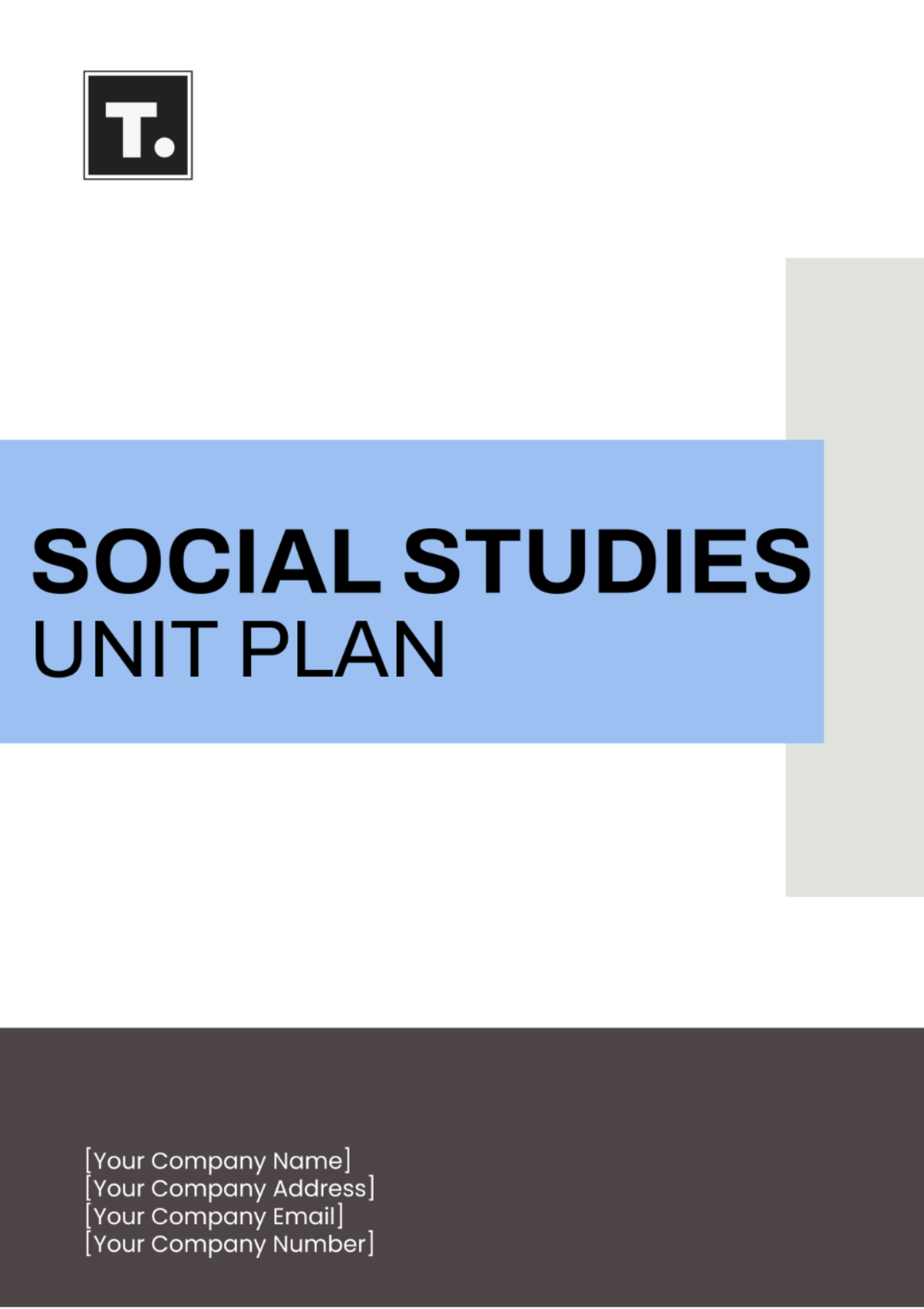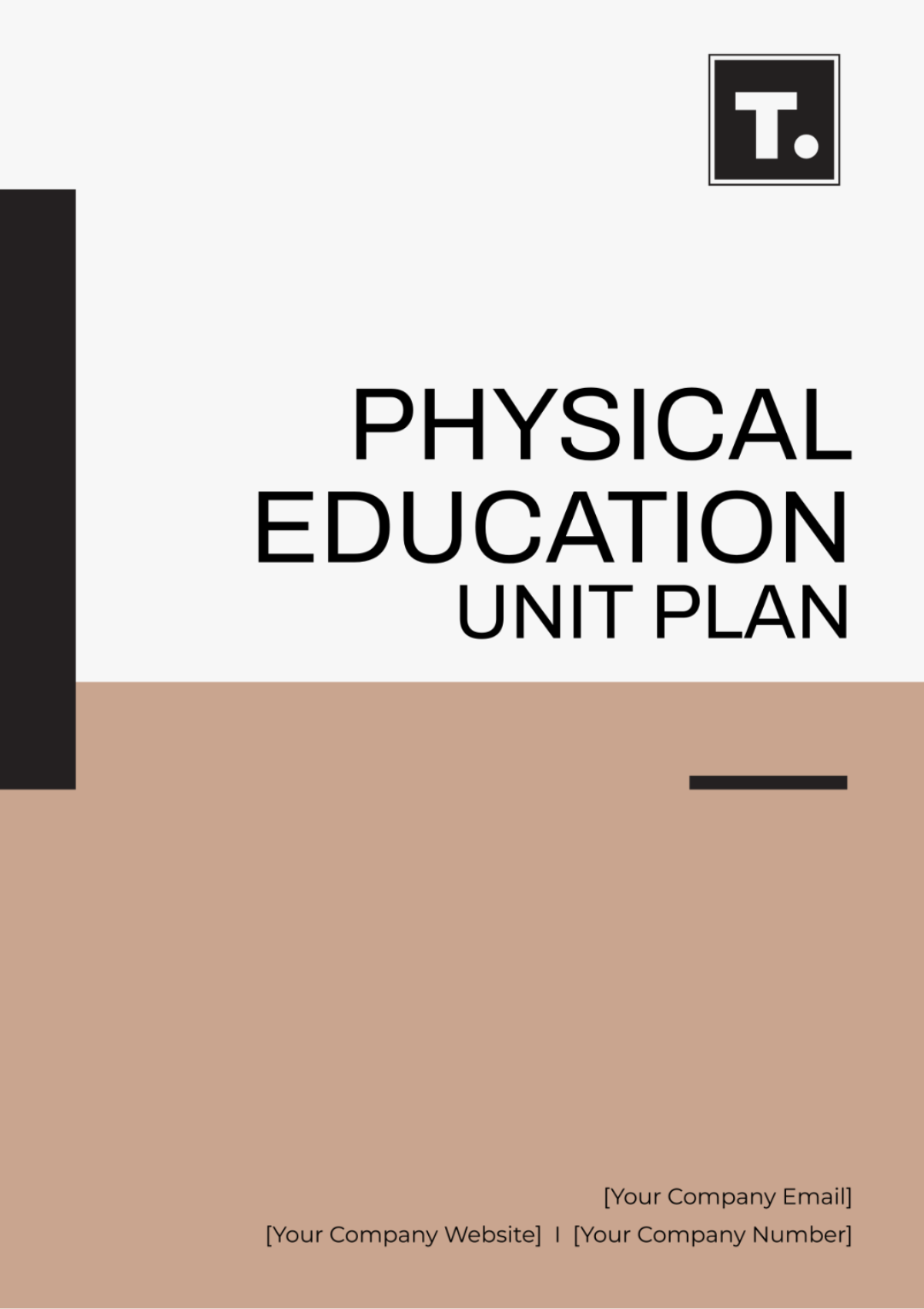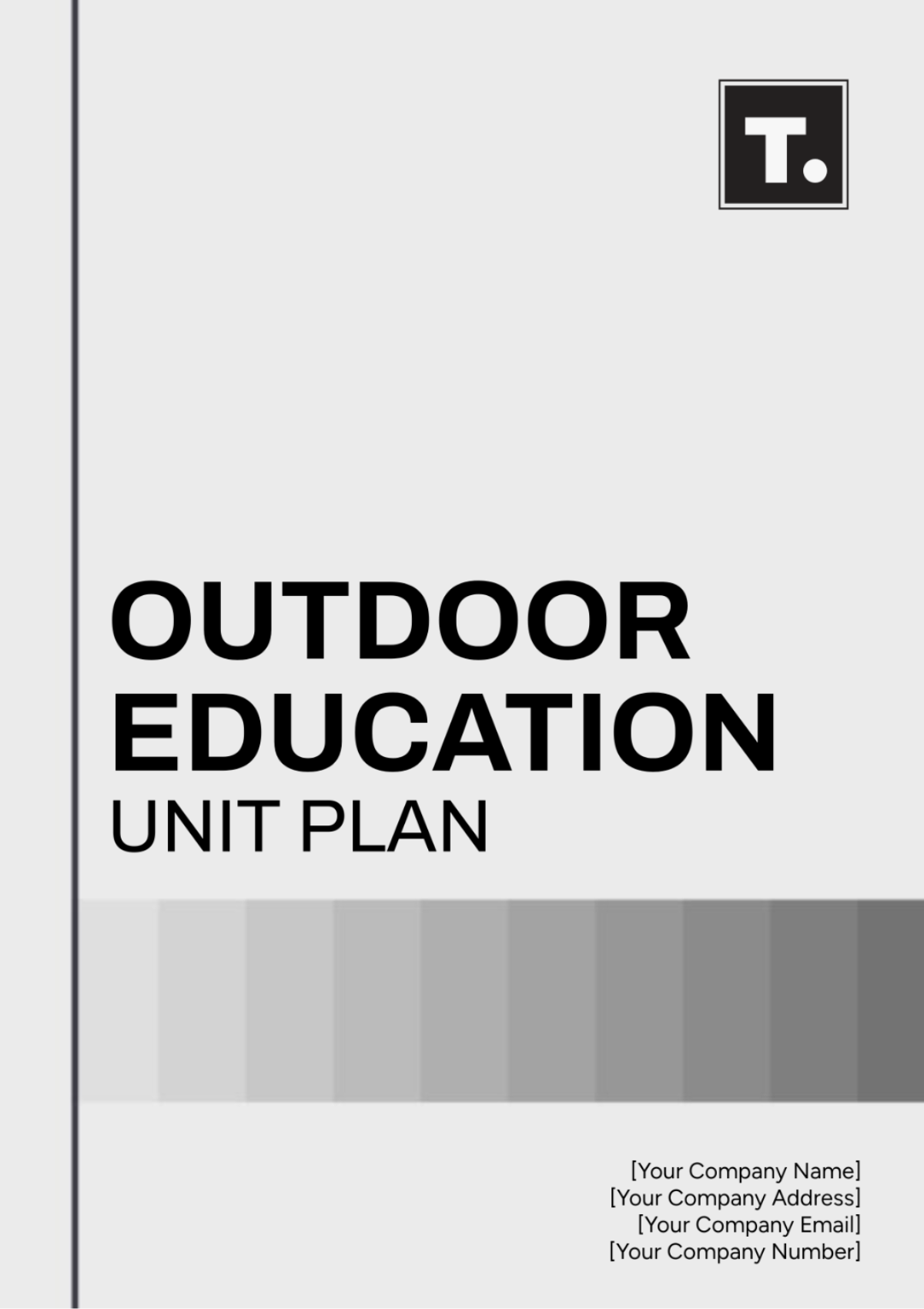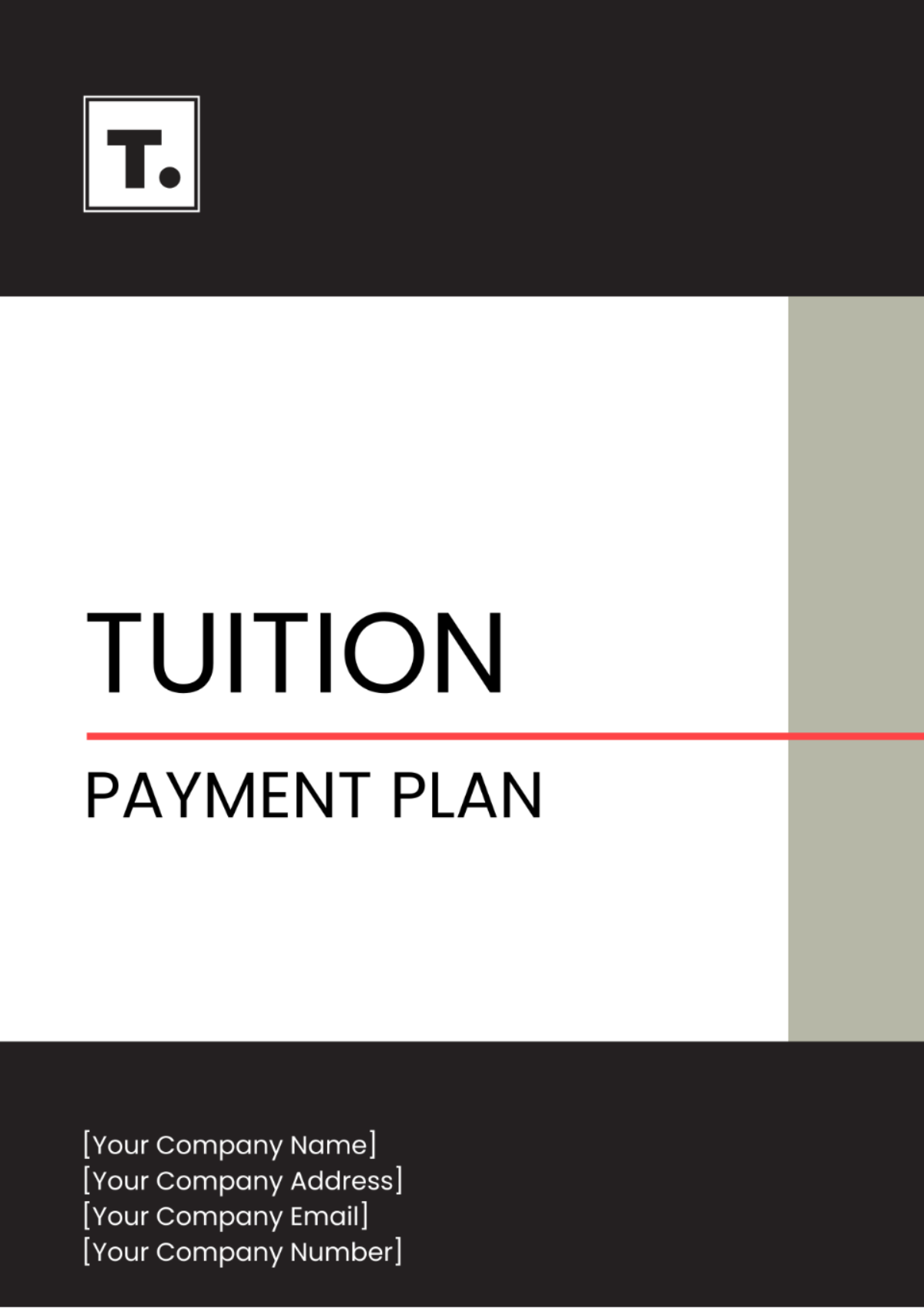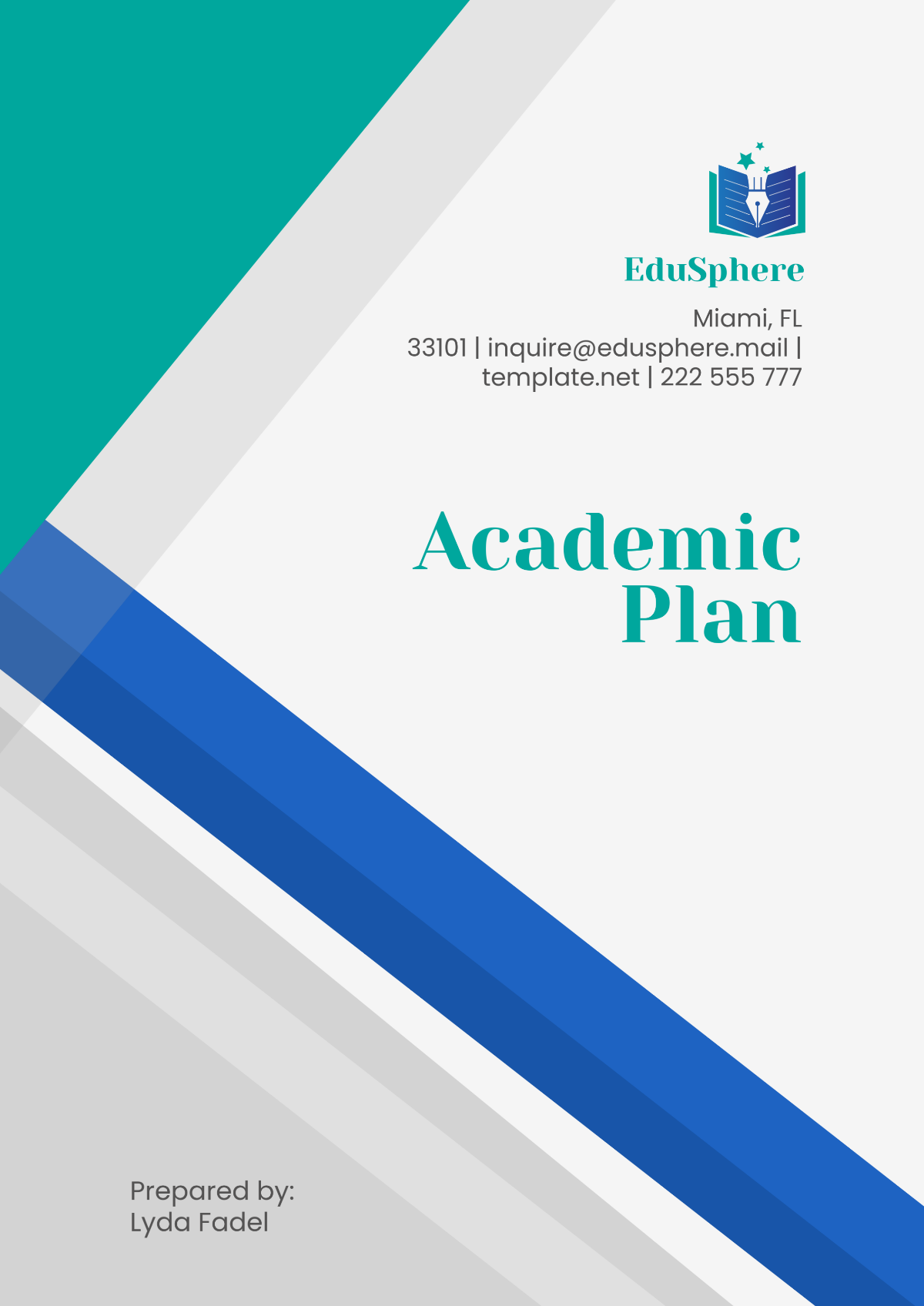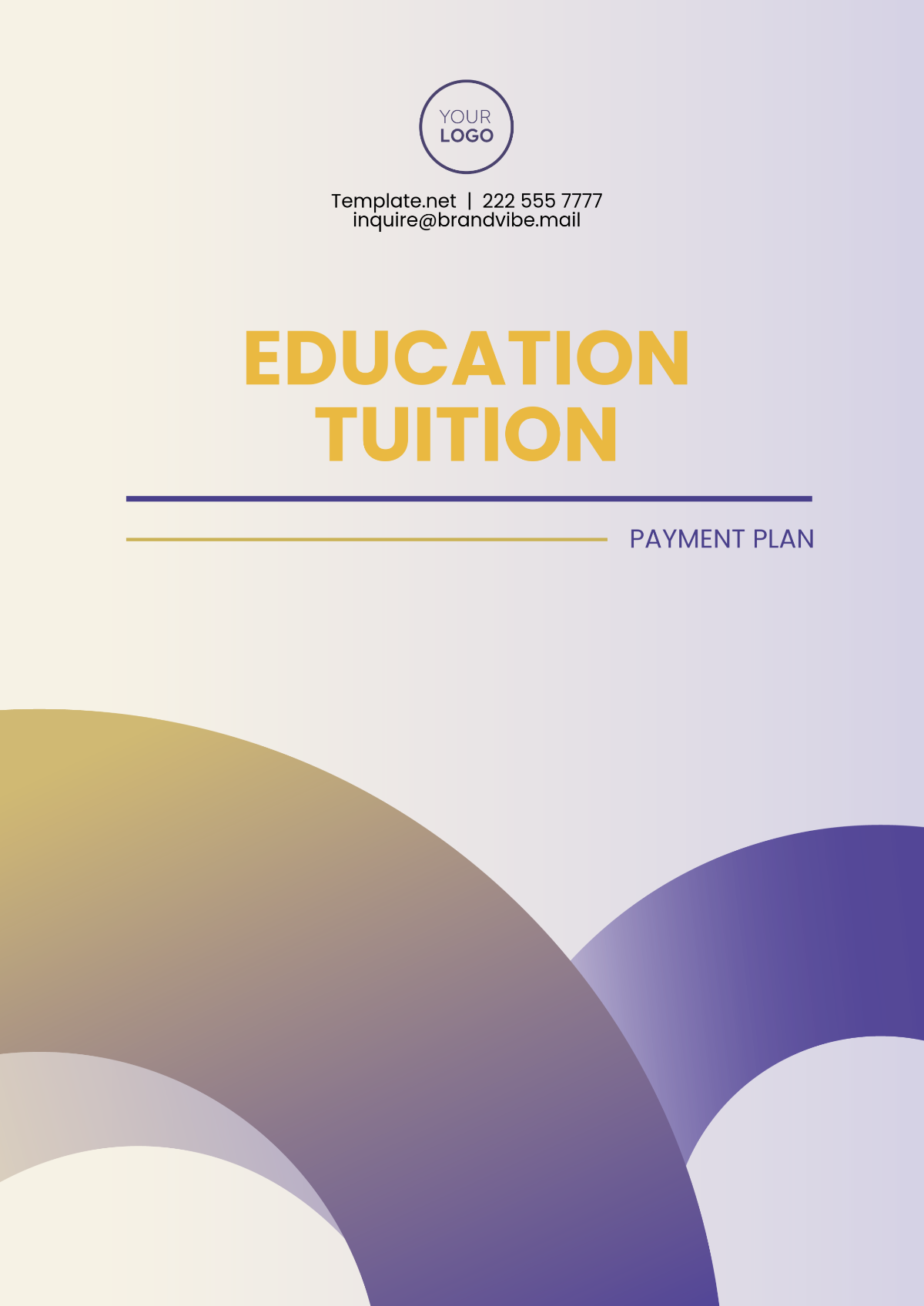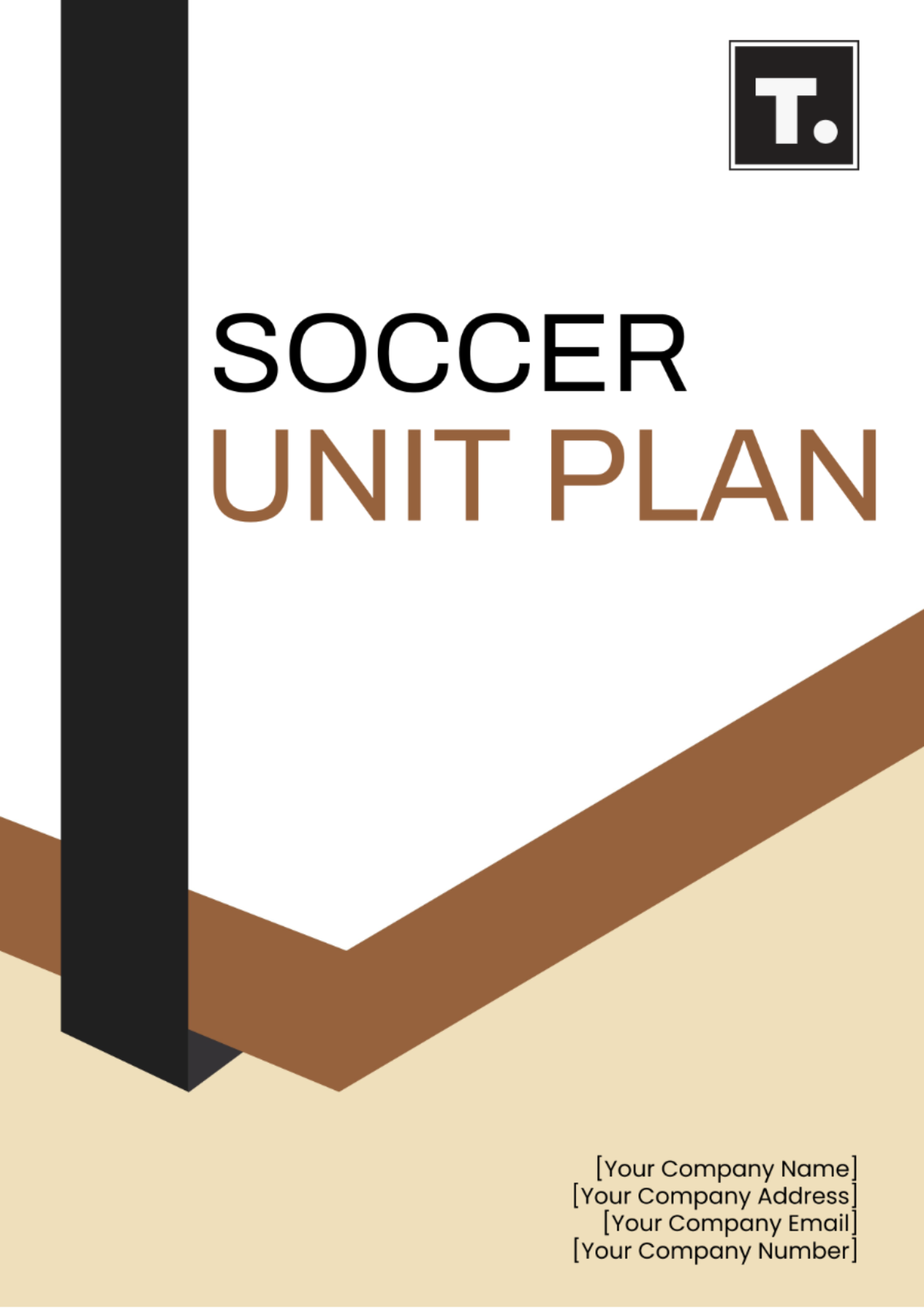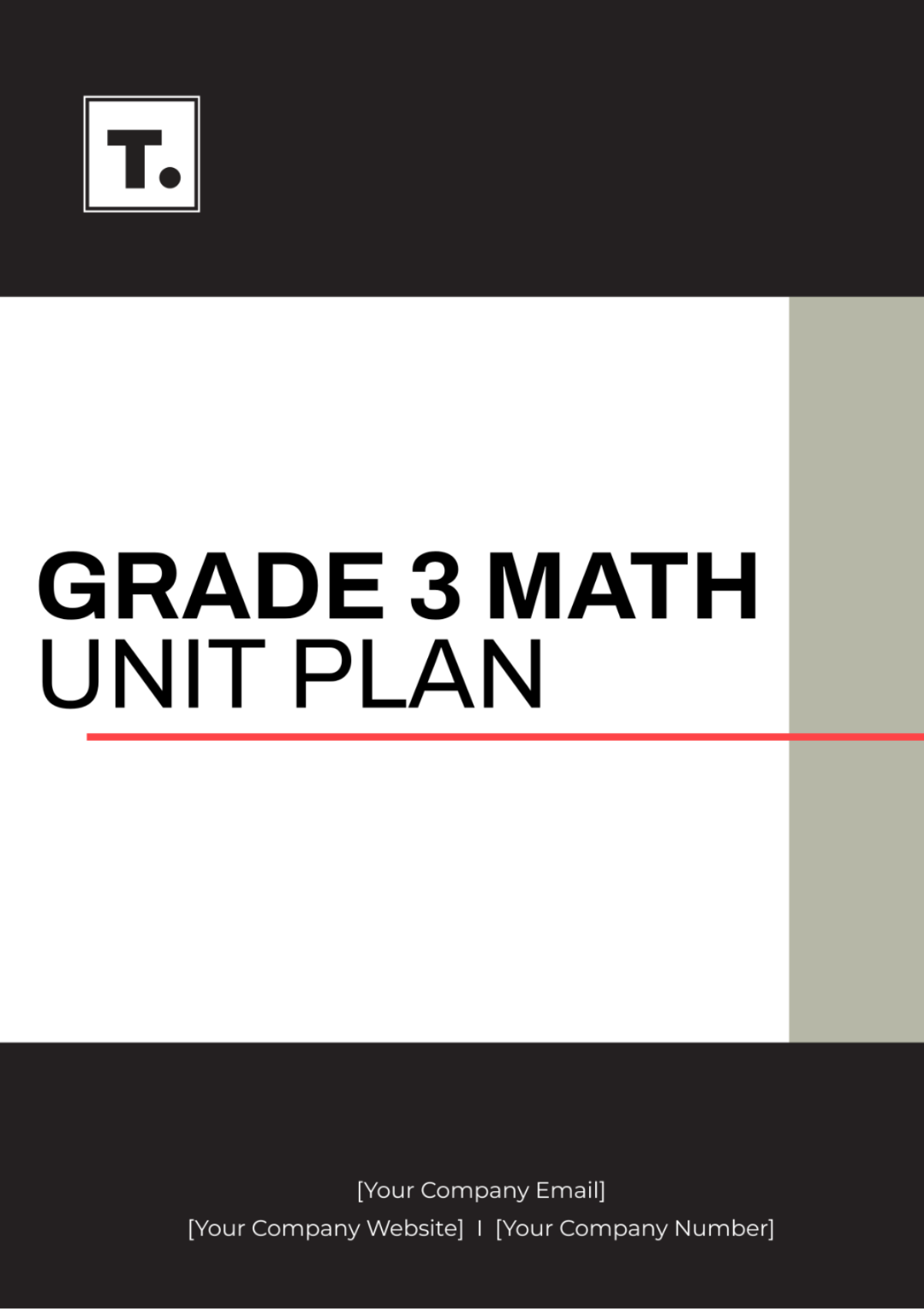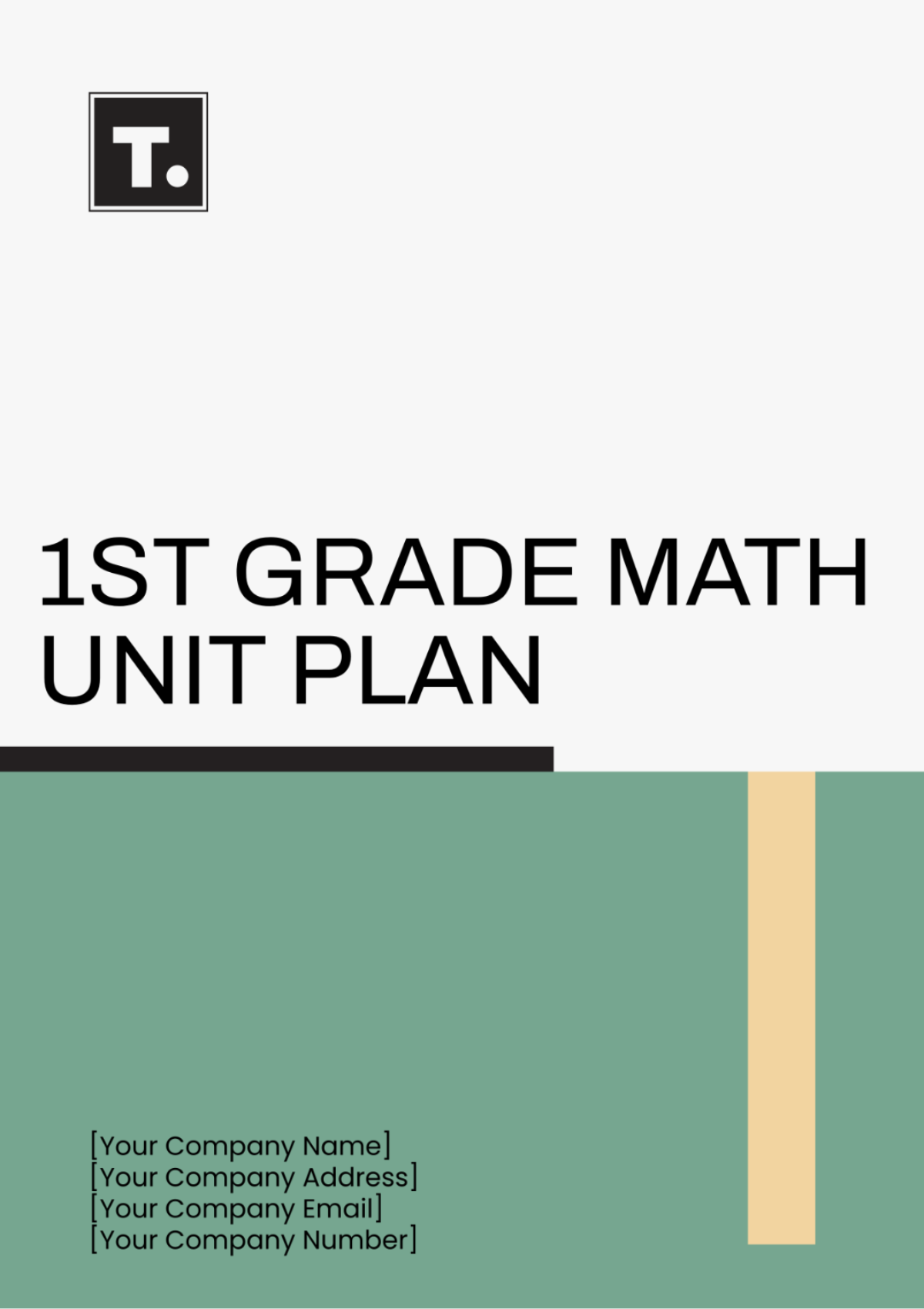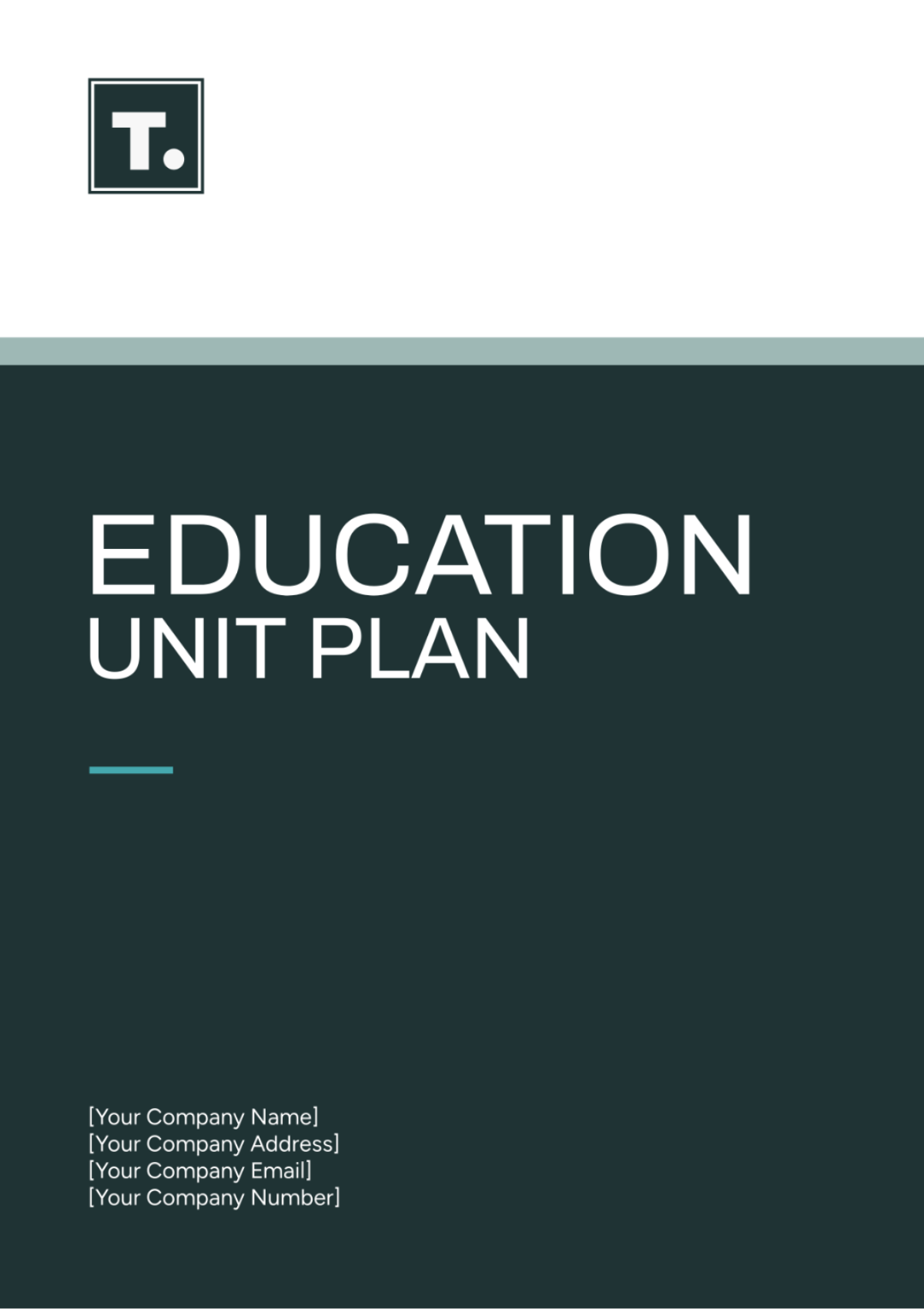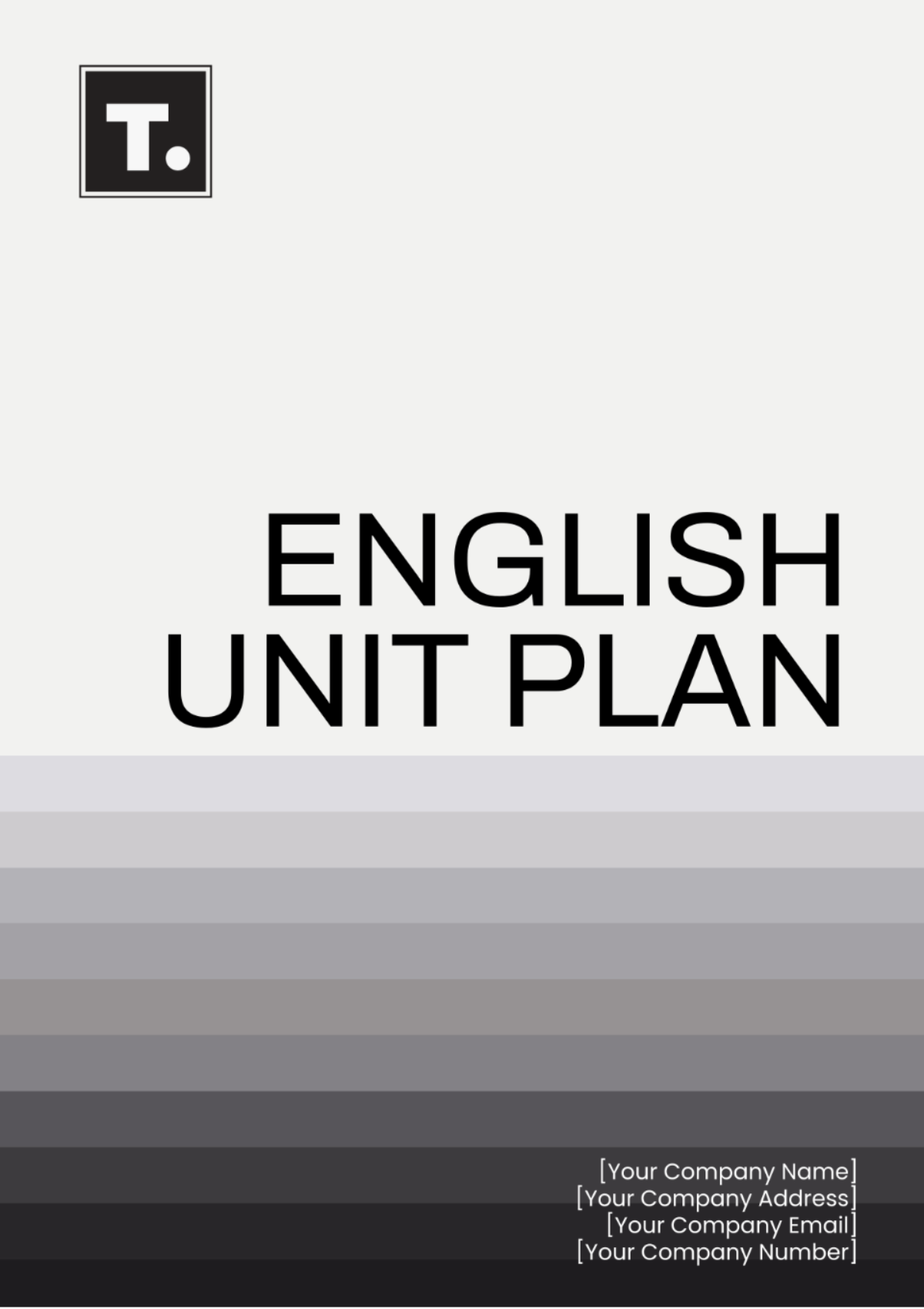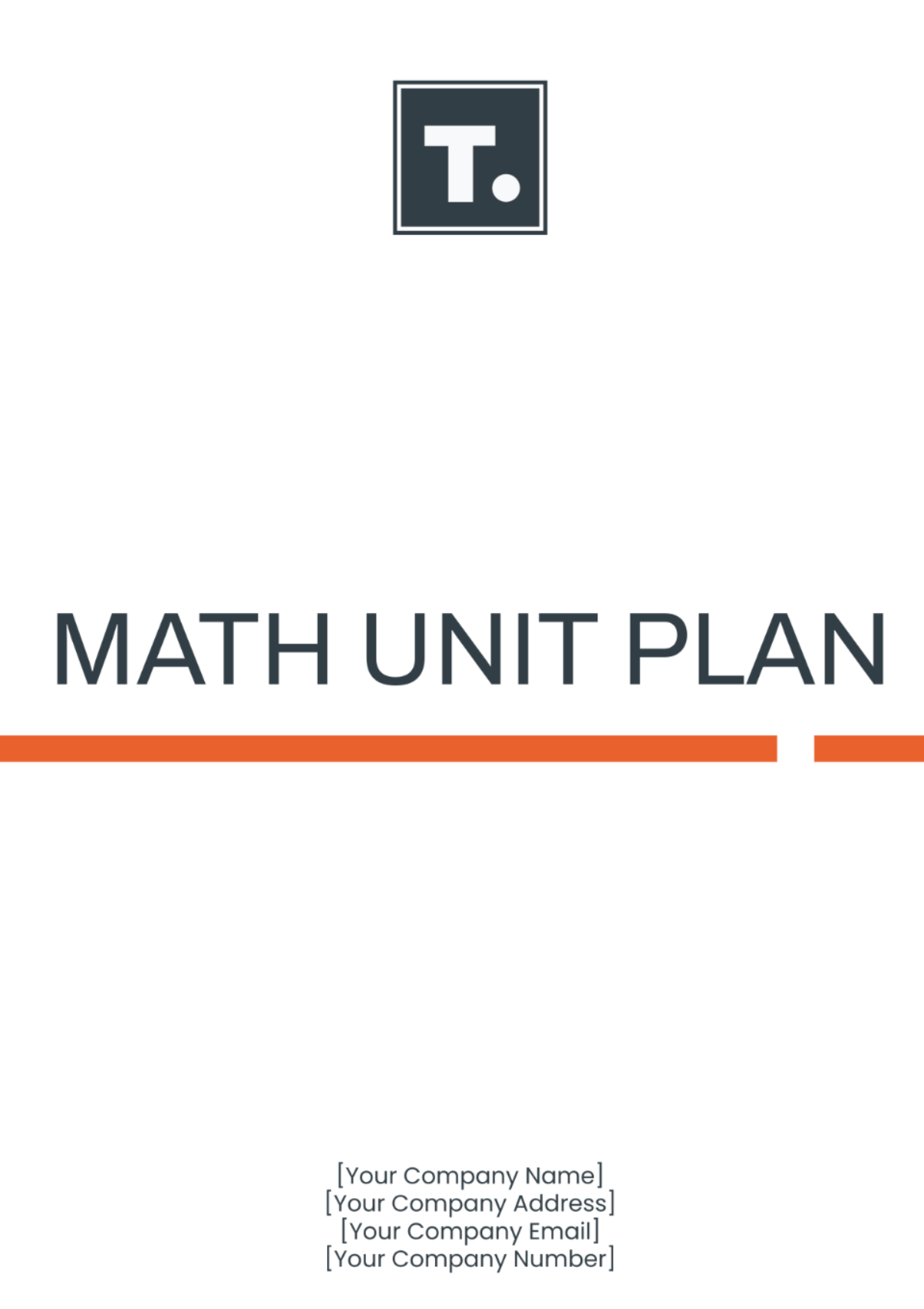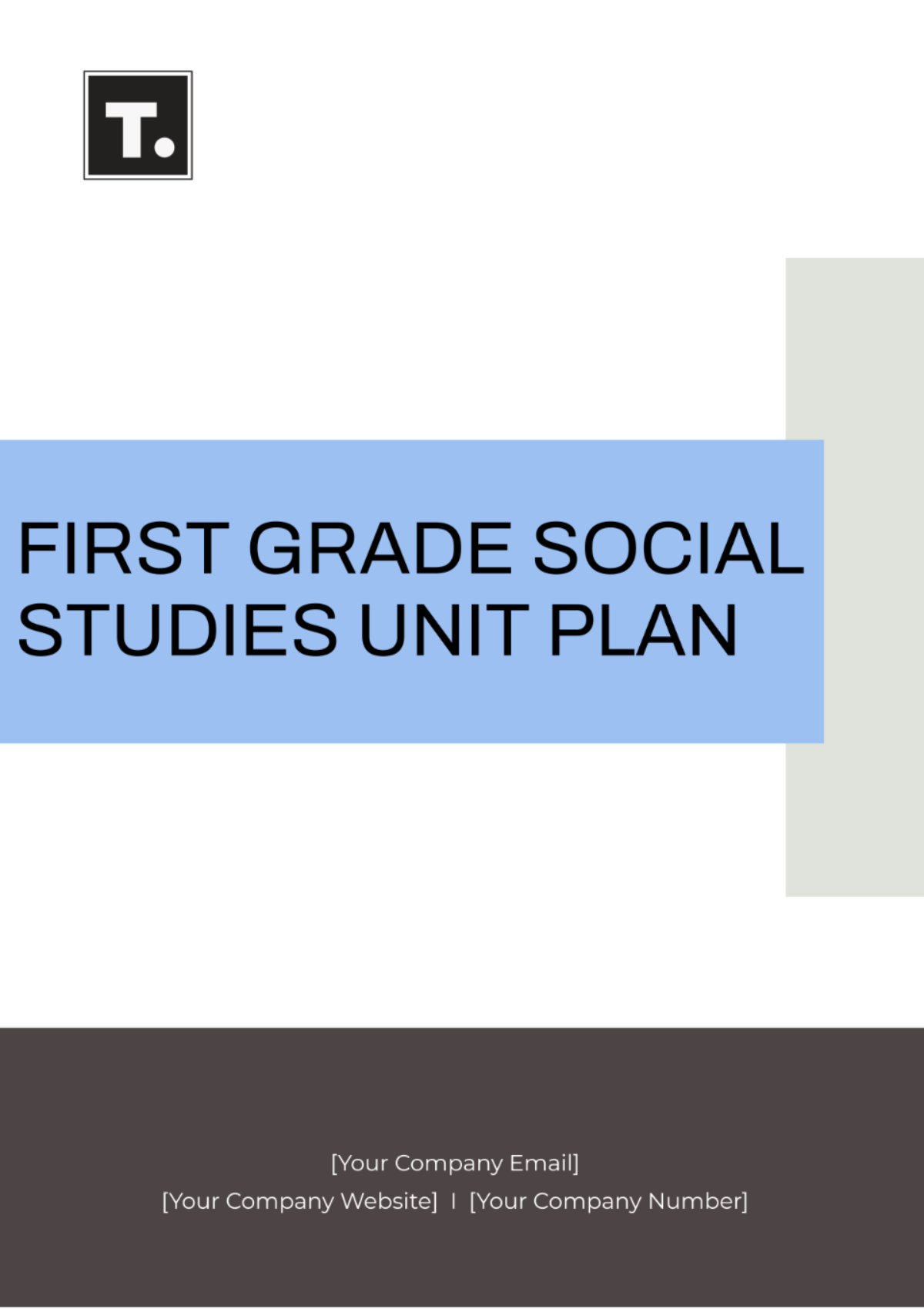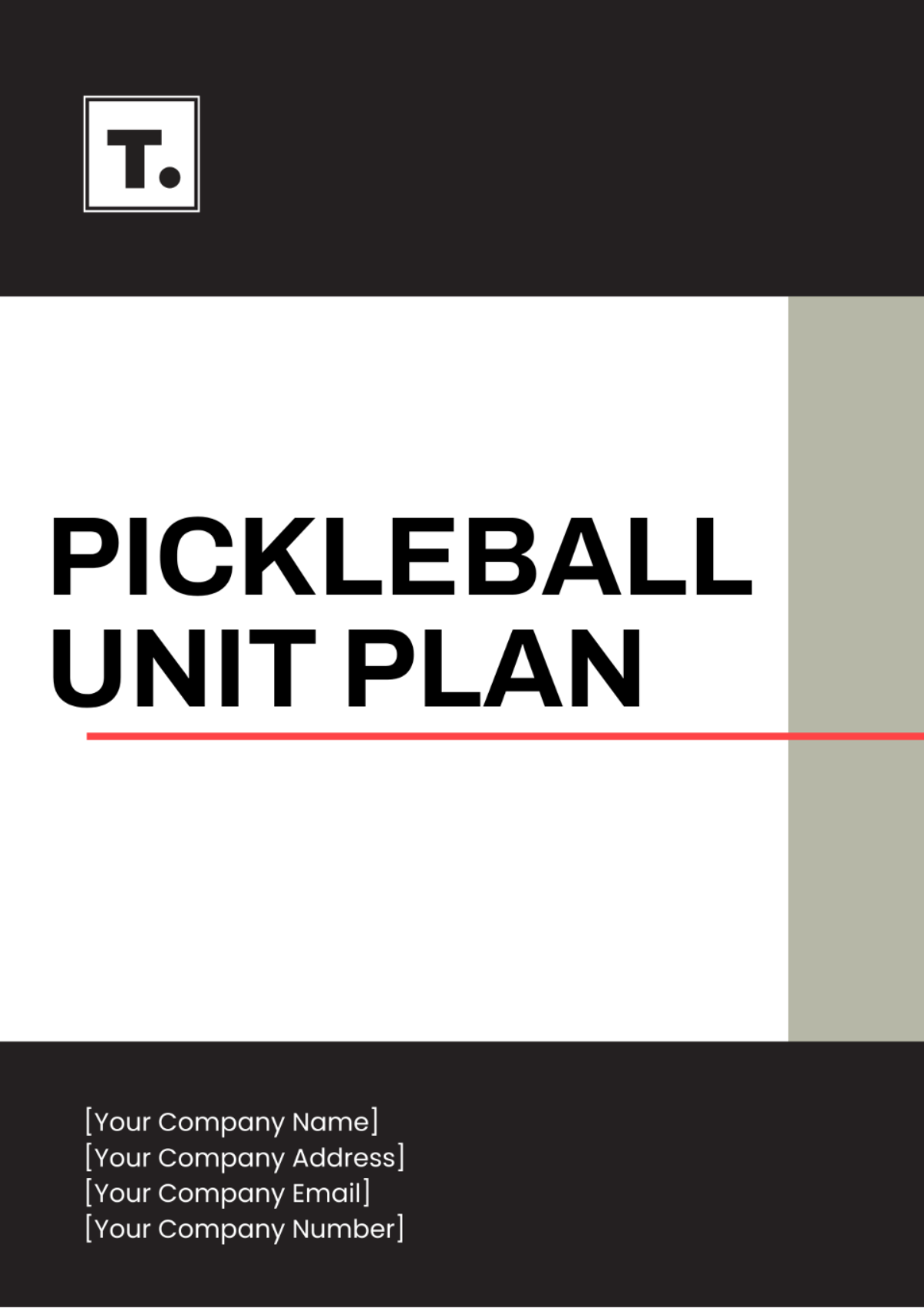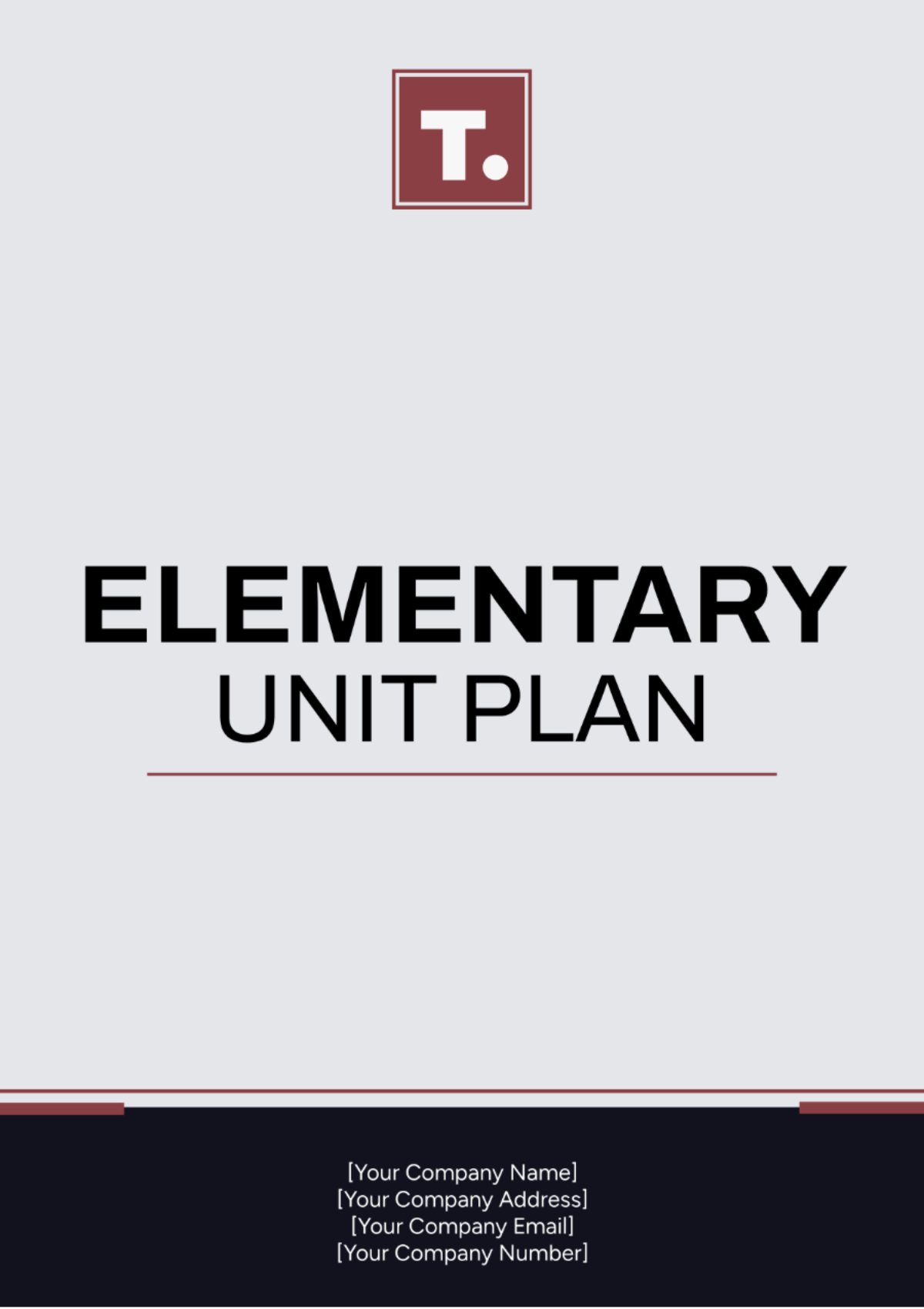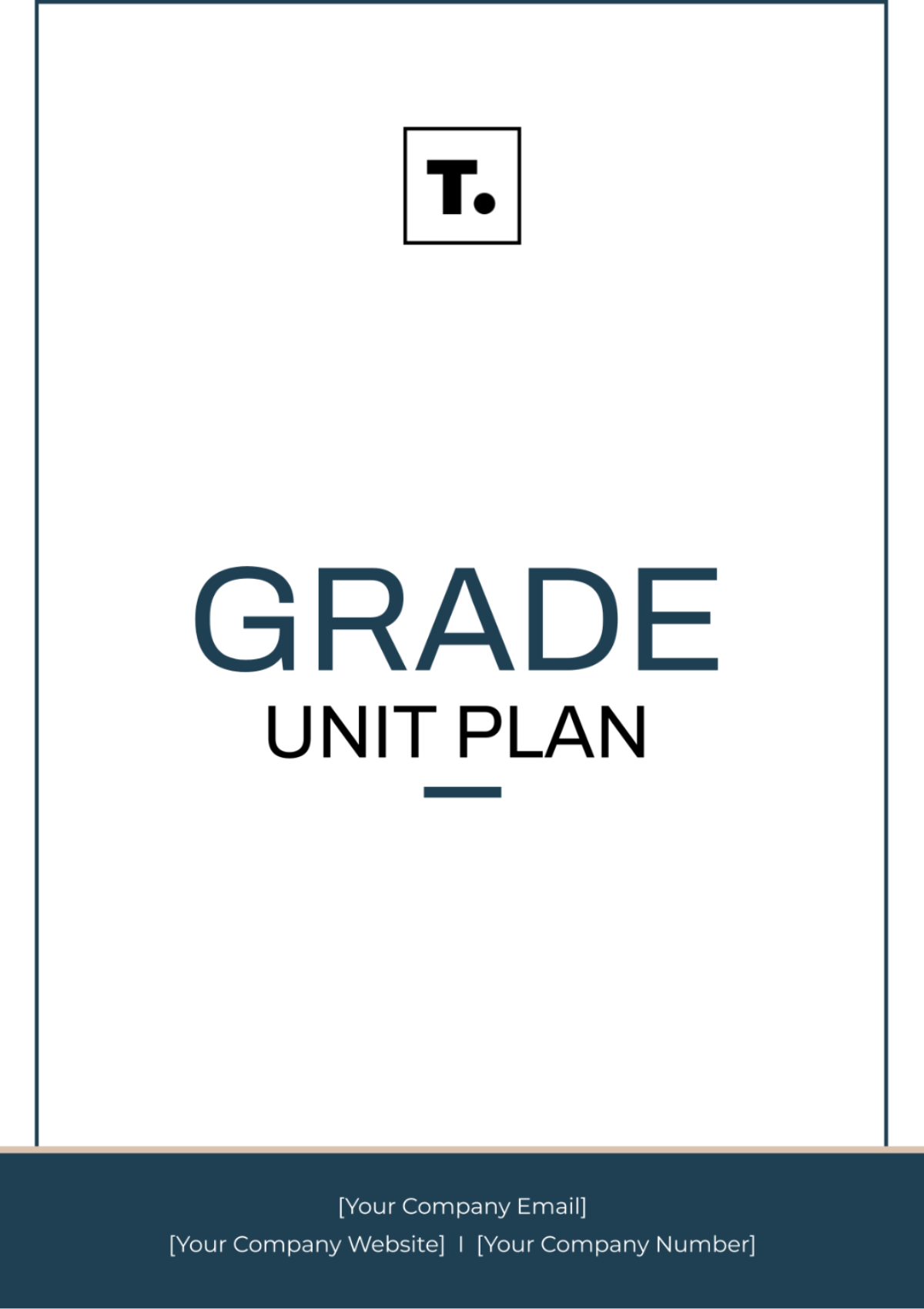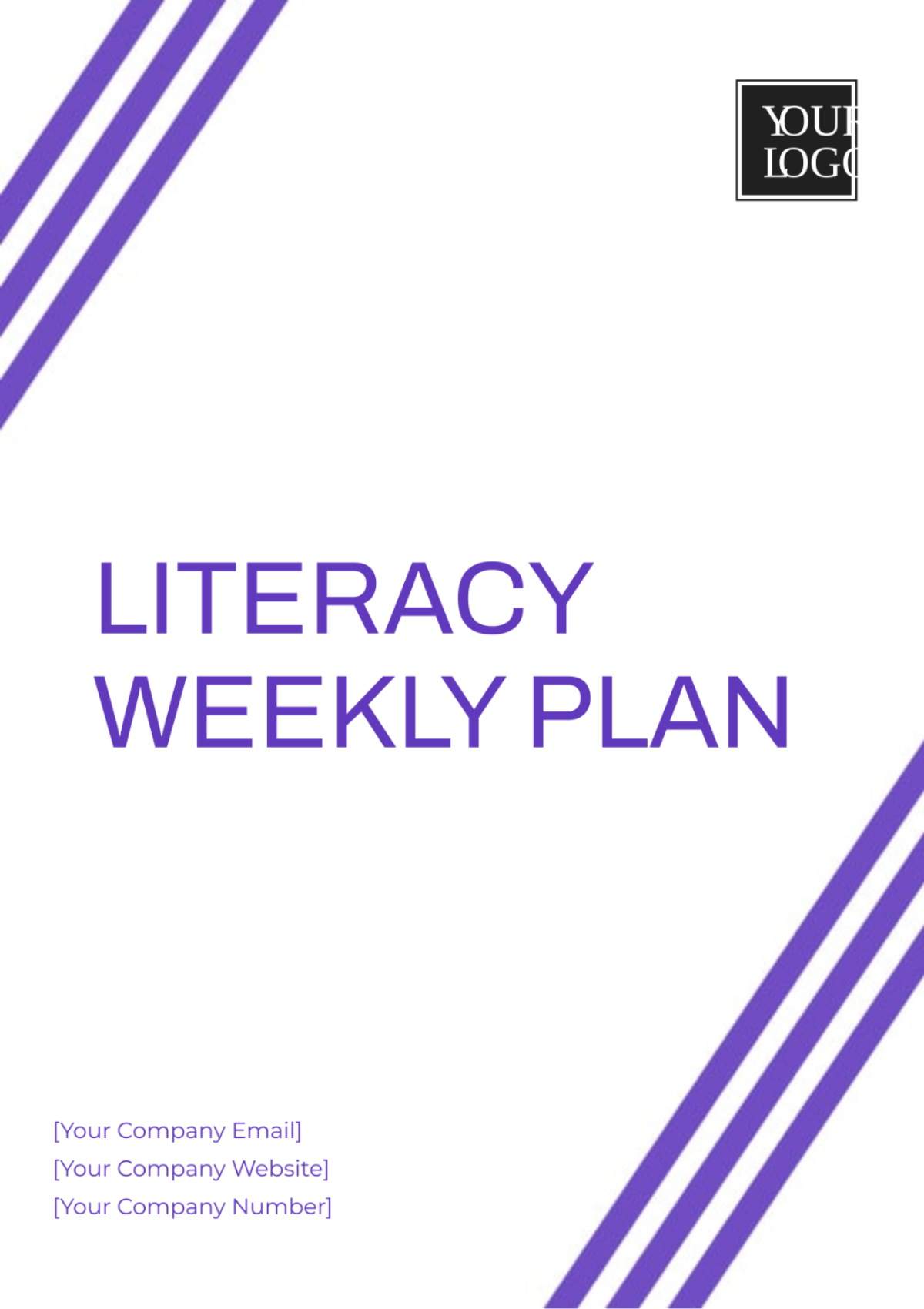Math Unit Plan
Prepared by: [Your Name]
Subject: Mathematics
Topic: Multiplication and Division
Date: [ Date]
I. Overview
Welcome to [Your Company Name] comprehensive unit plan tailored to enhance students' fluency and comprehension of multiplication and division concepts. Through engaging activities and targeted instruction, this unit aims to solidify foundational mathematical principles while fostering a deeper understanding of these essential operations.
II. Learning Objectives
By the conclusion of this unit, students will be proficient in:
Understanding and applying the properties of multiplication, including commutative, associative, and distributive properties.
Solving multiplication problems fluently within 100.
Grasping the concept of division as the inverse operation of multiplication.
Successfully solving division problems with divisors up to 10.
Applying multiplication and division within 100 to solve real-world problems.
III. Standards Alignment
This unit aligns with the following mathematics standards:
CCSS.MATH.CONTENT.3.OA.A.1: Interpret products of whole numbers.
CCSS.MATH.CONTENT.3.OA.B.5: Apply properties of operations as
strategies to multiply and divide.
CCSS.MATH.CONTENT.3.OA.C.7: Fluently multiply and divide within 100.
IV. Unit Timeline
Week | Topic | Activities |
|---|---|---|
Week 1 | Introduction to Multiplication | - Interactive lesson on multiplication concepts |
- Group activities involving multiplication games | ||
- Worksheets on basic multiplication problems | ||
Week 2 | Properties of Multiplication | - Lesson on commutative, associative, and distributive properties |
- Class discussions and partner work | ||
- Practice exercises on applying properties | ||
Week 3 | Introduction to Division | - Interactive lesson on division concepts |
- Group activities involving division games | ||
- Worksheets on basic division problems | ||
Week 4 | Connecting Division and Multiplication | - Lesson on the inverse relationship between multiplication and division |
- Problem-solving sessions | ||
- Final assessments and review activities |
V. Instructional Strategies
This unit employs diverse instructional strategies to cater to various learning styles:
Direct Instruction: Clear, focused lessons introducing new concepts.
Collaborative Learning: Group activities and peer discussions.
Hands-on Activities: Utilizing manipulatives and visual aids.
Interactive Technology: Incorporating educational software and online resources.
Formative Assessments: Regular, informal assessments to gauge understanding.
VI. Assessment
Assessment methods include:
Quizzes and tests on multiplication and division concepts.
Performance tasks demonstrating application of skills in real-world scenarios.
Participation in class discussions and group activities.
Completion of homework and in-class assignments.
VII. Resources
Utilize the following resources to support the unit:
Resource | Description | Link/Location |
|---|---|---|
Textbook | Mathematics textbook covering relevant chapters | Classroom/Library |
Manipulatives | Tools for hands-on learning | Classroom Supplies |
Educational Software | Interactive programs for practice | Math Games |
VIII. Differentiation
This unit plan includes strategies for accommodating diverse learner needs:
Differentiated Instruction: Tailoring instruction based on readiness and interest.
Varied Practice Levels: Offering different levels of practice problems.
Flexible Grouping: Encouraging peer learning through adaptable groupings.
Scaffolding Techniques: Providing support for challenging concepts.
IX. Reflection and Adjustment
Reflect on unit effectiveness through:
Student Feedback: Soliciting input on learning experiences.
Assessment Evaluation: Analyzing results to identify areas for improvement.
Instructional Adjustment: Modifying strategies based on reflection and feedback.
